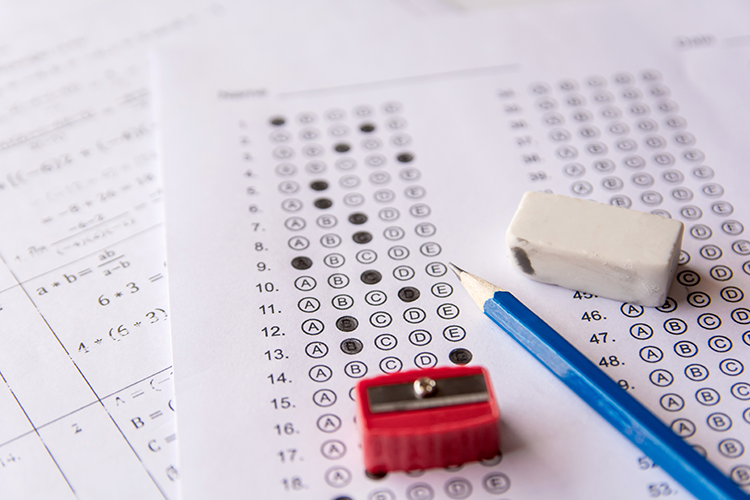JD-Next should be backup to traditional entrance requirements, says ABA consultant

“This report underscores that far more research and proof is necessary before JD-Next should be used as a valid and reliable assessment for law school admission,” according to an email from a spokesperson from the Law School Admission Council. (Image from Shutterstock.)
JD-Next, a prelaw school exam administered by Aspen Publishing, should be used only as a secondary supplement to more established measurements of potential law student success, such as undergraduate grades or more established testing scores, according to a new report from a consultant for the ABA.
The memo, posted Jan. 16 on the ABA website, comes after the council of the ABA Section of Legal Education and Admissions to the Bar granted 47 of the 196 accredited U.S. law schools permission to use the fledgling exam that aims to reduce disparities in law school preparation.
The memo, written by Nathan Kuncel, an industrial organizational psychology professor at the University of Minnesota, concludes that the “JD-Next exam is a reliable and valid predictor of early law school grades but with multiple cautions and caveats that cannot be evaluated with the present data and may represent threats to its validity if used operationally for high-stakes decisions.”
As the law schools with permission for a variance from Standard 503 start accepting scores from the JD-Next exam, the weight of acceptance decisions “should be placed on the well-established combination of tests and grades while using JD-Next as a lightly weighted addition to the decision,” according to the 12-page report.
“If used as the primary piece of information in the admissions decisions, additional research would be needed to evaluate the inevitable potential threats to validity that come from high-stakes use of a decision-making tool for scarce opportunities like admission to prestigious law schools,” according to the memo.
Along with threats to data validity and other considerations, including the need for accommodations for students with disabilities in the instruction and for the JD-Next test were cited.
Once those issues are resolved and more data is collected establishing the JD-Next test as a reliable predictor of success, however, law school administrators could give it more weight in admissions decisions, the memo says.
Christopher Robertson, the founding principal investigator of the JD-Next research, is “delighted to receive the consultant’s report that, with various caveats and cautions, concludes that JD-Next is a valid and reliable test for law school admissions” and is consistent with multiple peer-reviewed studies, he wrote in an email to the ABA Journal.
“That predictive validity finding is exactly what is required by the ABA law school accreditation standards,” Robertson wrote, adding that JD-Next researchers will continue studying the test results.
Students take the JD-Next test following a series of online courses developed in 2019 by the University of Arizona James E. Rogers College of Law that teaches the basis of contract law, as well as case reading and analysis skills.
Data came from four samples—three collected from students who participated in in JD-Next curriculum and one who did not, as well as grades from their first year of law school. The group who didn’t take the class instead watched and wrote about television dramas—and, surprisingly, did fairly well, according to the memo.
Last year, the Section of Legal Education and Admissions to the Bar walked back its plans to go forward with a proposal to remove its long-standing requirement that law schools use the Law School Admission Test in admissions after law school deans expressed concerns that using the JD-Next exam would let in law students unlikely to graduate and pass the bar exam.
“This report underscores that far more research and proof is necessary before JD-Next should be used as a valid and reliable assessment for law school admission,” according to an email from a spokesperson from the Law School Admission Council, which administers the LSAT. “The report outlines numerous concerns and problems and calls for more research and information.”
The U.S. Supreme Court’s June 2023 ruling banning race-conscious admissions has led to concerns that achieving diverse law school classes will be a struggle.
The ABA council will review this report and any resulting comments at its February meeting, according to the ABA website.



